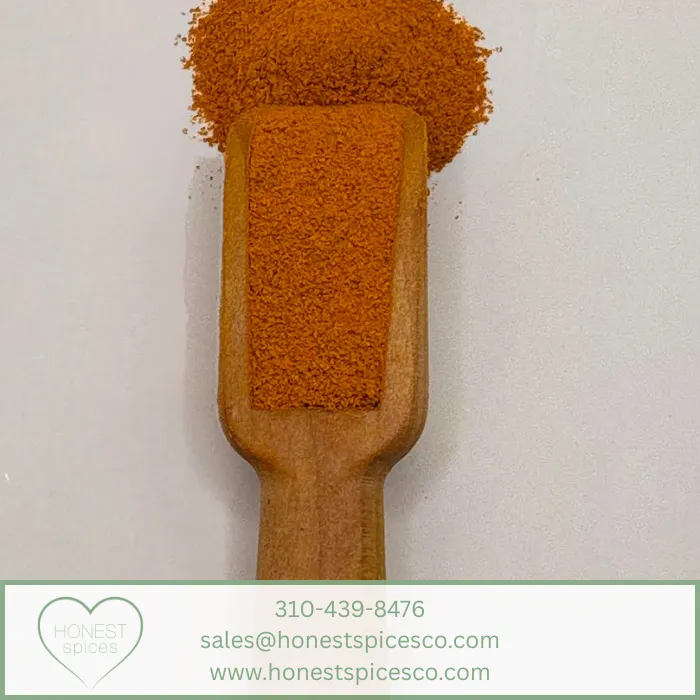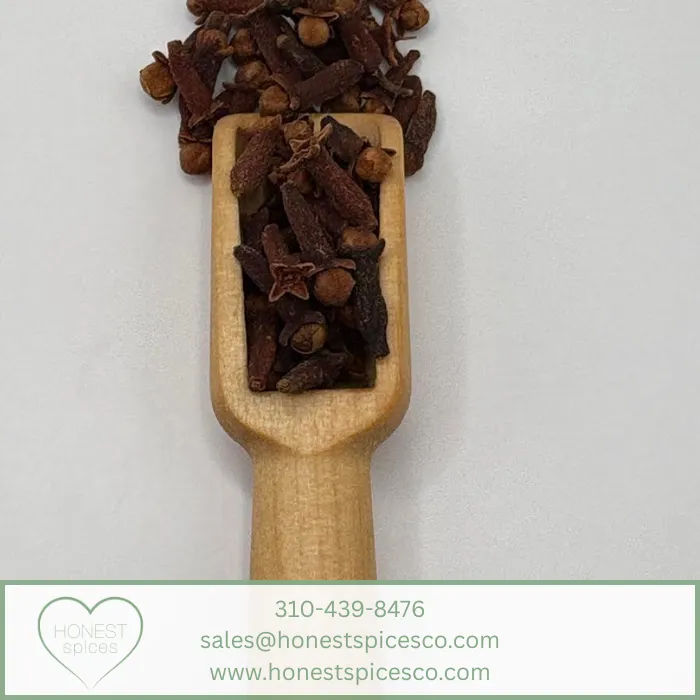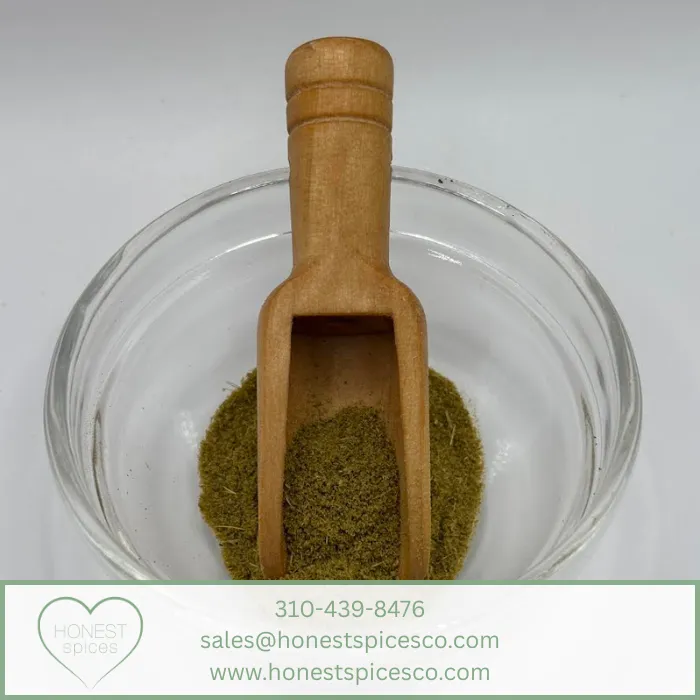Organic Spices in Chatsworth, CA: A Health-First Guide
How choosing organic spices can boost wellbeing, flavor, and food safety in your kitchen
Why organic spices matter for your health
When we talk about organic spices, most people think first about taste — and rightly so. But organic spices deliver more than flavor: choosing organic spice blends and single-origin organic herbs reduces exposure to synthetic pesticides, often preserves higher levels of delicate phytochemicals, and supports farming practices that prioritize soil health and biodiversity. For residents of Chatsworth, CA who care about daily health choices, switching to organic spices is a small change with outsized returns.
```
Conventional spice crops can be sprayed with insecticides and fungicides at different points during growth, harvest, and storage. Even though spices are used in small amounts, those chemicals can accumulate over time when you regularly consume spice-heavy dishes or spice blends. Organic certification places limits on what can be applied near harvest and often requires more careful, transparent handling — which matters for long-term health.
Beyond chemical exposure, organic farming practices often produce spices with richer profiles of volatile oils and antioxidants because plants under organic cultivation frequently face more natural stressors that stimulate protective phytochemical production. That means your turmeric, cumin, cinnamon, or paprika may be both tastier and better for you when labeled organic.
```
Key health benefits of specific organic spices
Not all spices are created equal when it comes to research-backed health effects, but several stand out. Organic turmeric contains curcuminoids — compounds with well-documented anti-inflammatory properties. Organic cinnamon can help modulate blood-sugar responses when used as part of a balanced diet. Organic ginger supports digestion and has anti-nausea effects. Organic garlic powder and ground black pepper bring immune-supportive and circulation-friendly components into meals.
```
Using whole, organic spices where possible (whole cloves, black peppercorns, cinnamon sticks) preserves essential oils better than pre-ground versions. Grinding just before use helps retain those beneficial compounds so you get the most from your organic spices.
When combining spices, remember that some interactions are synergistic: black pepper enhances the absorption of curcumin from organic turmeric, so pairing them together in recipes increases turmeric’s effectiveness.
```
How to choose high-quality organic spices in Chatsworth, CA
When shopping for organic spices—whether at local markets, health food stores, or online—look beyond the word “organic” on the label. Check for:
- Certified organic seals from trusted certifiers.
- Clear ingredient lists (no hidden fillers or anti-caking agents you don’t recognize).
- Harvest or “best-by” dates — fresher is better for both flavor and nutrient potency.
- Minimal packaging that protects from light and moisture (dark glass or sealed pouches are preferable).
```
For Chatsworth residents, prioritize vendors who can speak to sourcing and freshness. Smaller, specialty spice suppliers and co-ops often rotate stock more quickly than large chains, which means fresher organic spices on your shelf.
Tip: When in doubt, buy whole organic spices and roast-and-grind them at home. The difference in aroma and healthful volatile compounds is immediate and noticeable.
```
Storage, freshness, and maximizing health benefits
Even the best organic spices lose potency if stored poorly. To keep flavor and phytochemicals intact, store organic spices in a cool, dark place away from heat (stove tops are a no-no) and sunlight. Use airtight containers; oxygen and moisture break down both flavor and nutrients.
```
Label home-ground spices with the grind date. Whole spices can stay vibrant for 1–3 years if stored properly; ground spices are best used within 6–12 months. Rotate stock and buy quantities you’ll consume within those windows to avoid wasted flavor and diminished health benefits.
A practical habit: write the purchase or grind date on the container with a permanent marker. Your future self will appreciate the stronger aroma and better results in cooking.
```
Using organic spices in daily wellness routines
Incorporating organic spices into everyday meals is easy and scalable. Add organic turmeric to morning smoothies or golden milk; sprinkle organic cinnamon into oatmeal; infuse tea with fresh organic ginger for digestion; mix black pepper into salad dressings and soups to boost absorption of fat-soluble botanicals.
```
Think beyond savory dishes: organic spices partner beautifully with fruits, yogurt, and whole grain breakfasts. Swapping non-organic for organic spices across common recipes reduces cumulative exposure to unwanted residues without changing how you cook.
For those with specific health goals — such as managing chronic inflammation, improving digestion, or supporting metabolic health — using targeted organic spices as part of a balanced diet can complement medical care. Always coordinate changes with your healthcare provider when you’re using spices therapeutically or in concentrated forms.
```
Practical recipes and blends to try at home
Here are simple, health-forward ways to use organic spices in Chatsworth kitchens:
```
Golden Turmeric Blend: Organic turmeric + organic black pepper + organic cinnamon + a pinch of organic ginger powder. Mix into warm almond milk for an anti-inflammatory drink.
Digestive Tea: Slice fresh organic ginger, add a pinch of organic fennel seed and organic cardamom pods, steep in hot water. Sip after meals to support digestion.
Everyday Spice Rub: Combine organic smoked paprika, organic cumin, organic garlic powder, salt, and pepper for a versatile rub for vegetables or grilled proteins — nutrient-forward flavor without artificial additives.
```
Eco and community benefits of buying organic spices locally
Choosing organic spices often supports farmers who prioritize soil health, biodiversity, and reduced chemical runoff. When Chatsworth shoppers choose local or regional organic suppliers where possible, they contribute to a food system that values environment and community resilience. Even if a spice originates overseas, choosing certified organic signals consumer demand for more sustainable practices.
```
Wherever you buy, ask vendors about packaging choices and whether they offer refill options — refilling reduces waste and can often save money while keeping your pantry stocked with quality organic spices.
```
Final checklist: switching to organic spices with confidence
Here’s a simple checklist to make the switch easy and health-forward:
- Start with staples that you use daily (turmeric, black pepper, cinnamon, cumin).
- Buy whole organic spices when possible and grind fresh.
- Store in airtight, dark containers; label with dates.
- Buy from vendors who disclose sourcing and rotation practices.
- Use spices synergistically (e.g., black pepper with turmeric) to enhance benefits.
```
Small, consistent swaps toward organic spices in Chatsworth, CA can meaningfully reduce chemical exposures, boost the nutritional punch of meals, and support farming practices that prioritize health for people and the planet.
Make one swap this week—replace your ground turmeric, cinnamon, or black pepper with an organic option—and notice the difference in aroma and how your kitchen feels. That tiny change is a practical, delicious step toward daily wellness.
```












